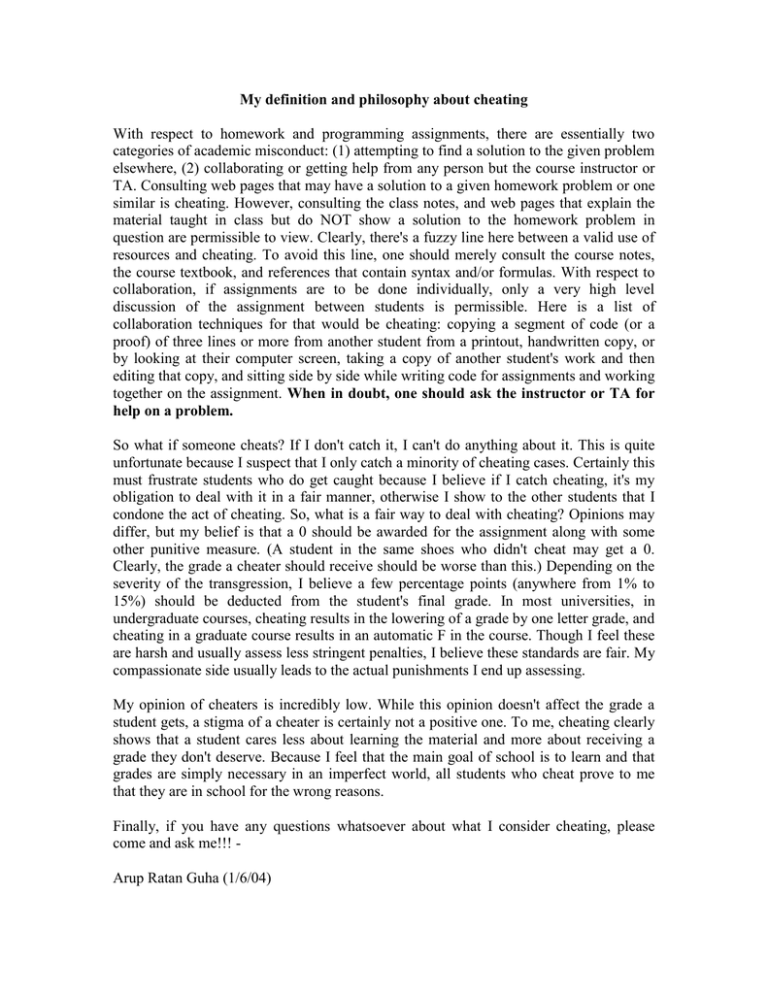My definition and philosophy about cheating
advertisement

My definition and philosophy about cheating With respect to homework and programming assignments, there are essentially two categories of academic misconduct: (1) attempting to find a solution to the given problem elsewhere, (2) collaborating or getting help from any person but the course instructor or TA. Consulting web pages that may have a solution to a given homework problem or one similar is cheating. However, consulting the class notes, and web pages that explain the material taught in class but do NOT show a solution to the homework problem in question are permissible to view. Clearly, there's a fuzzy line here between a valid use of resources and cheating. To avoid this line, one should merely consult the course notes, the course textbook, and references that contain syntax and/or formulas. With respect to collaboration, if assignments are to be done individually, only a very high level discussion of the assignment between students is permissible. Here is a list of collaboration techniques for that would be cheating: copying a segment of code (or a proof) of three lines or more from another student from a printout, handwritten copy, or by looking at their computer screen, taking a copy of another student's work and then editing that copy, and sitting side by side while writing code for assignments and working together on the assignment. When in doubt, one should ask the instructor or TA for help on a problem. So what if someone cheats? If I don't catch it, I can't do anything about it. This is quite unfortunate because I suspect that I only catch a minority of cheating cases. Certainly this must frustrate students who do get caught because I believe if I catch cheating, it's my obligation to deal with it in a fair manner, otherwise I show to the other students that I condone the act of cheating. So, what is a fair way to deal with cheating? Opinions may differ, but my belief is that a 0 should be awarded for the assignment along with some other punitive measure. (A student in the same shoes who didn't cheat may get a 0. Clearly, the grade a cheater should receive should be worse than this.) Depending on the severity of the transgression, I believe a few percentage points (anywhere from 1% to 15%) should be deducted from the student's final grade. In most universities, in undergraduate courses, cheating results in the lowering of a grade by one letter grade, and cheating in a graduate course results in an automatic F in the course. Though I feel these are harsh and usually assess less stringent penalties, I believe these standards are fair. My compassionate side usually leads to the actual punishments I end up assessing. My opinion of cheaters is incredibly low. While this opinion doesn't affect the grade a student gets, a stigma of a cheater is certainly not a positive one. To me, cheating clearly shows that a student cares less about learning the material and more about receiving a grade they don't deserve. Because I feel that the main goal of school is to learn and that grades are simply necessary in an imperfect world, all students who cheat prove to me that they are in school for the wrong reasons. Finally, if you have any questions whatsoever about what I consider cheating, please come and ask me!!! Arup Ratan Guha (1/6/04)


